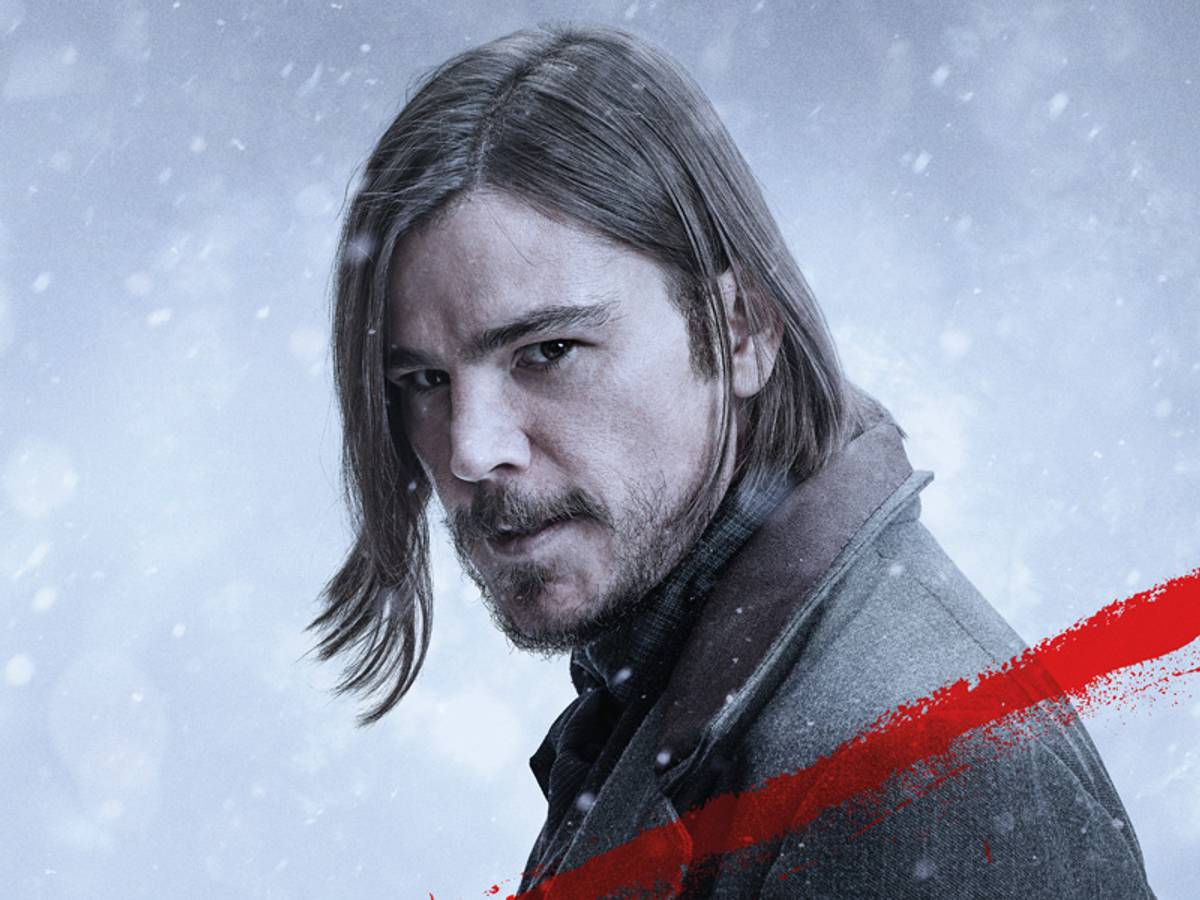
Look, it’s entirely possible that I am the only person in America who is watching Penny Dreadful. The ratings for Showtime’s witch-vampire-werewolf-Frankenstein extravaganza apparently aren’t too hot, and it’s no wonder: between Outlander and Game of Thrones, one’s weekend viewing schedule for period pieces with sometimes unintelligible accents and a strong emphasis on the supernatural is already pretty packed.
I, however, am the kind of person who can always make time for anything involving corsetry, literary pastiche, and demonic possession (although not necessarily in that order). Furthermore, I have been deeply, madly, embarrassingly in love with Josh Hartnett—he stars on Penny Dreadful as Ethan Chandler, a handsome, American sharpshooter with a violent and magical secret—since about 1998, so I’ve found myself quite transfixed by the show’s odd mix of Victoriana, medieval superstitions and mysticism retrofitted into the story, and repurposing of famous characters from literature, such as a re-imagined Victor Frankenstein and his various assortment of resurrected “creatures,” which occupies a major plotline, as does the story of the doomed Mina Murray and company from Bram Stoker’s Dracula.
French actress Eva Green plays Vanessa Ives, the cursed clairvoyant at the center of the series who writhes, flails, and babbles in a forbidden tongue called “Verbis Diablo,” or the Devil’s Speech, an intriguing combination of Latin, Greek, Aramaic Hebrew, with the odd backwards nonsense phrase thrown in. Ives grips her rosary until her palms bleed, and smears her personal magical sigil of the scorpion on every possible surface in blood, all in a desperate (and deliciously futile attempt) to keep the demons that haunt her at bay.
In Sunday’s episode, her intrepid band of allies did the same, albeit in their respective religious/cultural traditions. Sembene, the African manservant, fashioned tribal figures from straw and bits of wood and hung them from the rafters of the living room; Hartnett’s Chandler (oh God! Josh Hartnett! It makes me feel funny just to type your name!) murmurs a Hopi chant over a gourd filled with burning sage (he’s an American, after all); and Timothy Dalton, as Sir Malcolm Murray (the bereaved father of the aforementioned Mina), who fondles the flintlocks on a pair of handsome guns.
And how about Simon Russell Beale as Dr. Ferdinand Lyle, an effete, lisping Egyptologist with a shock of dyed-blond curls and a penchant for the kind of amusements that can get a man very effectively blackmailed in Victorian England? Well, Dr. Lyle makes his way into a secluded root cellar, lights a candle, pulls a yarmulke and tallit out of a worn leather case, and begins to pray. It’s a moment that made me gasp.
As a long-time fan of films and TV shows that involve fantasy-horror motifs, I’ve become incurred to the essential Christianity of the genre: the binary sense of Heaven vs. Hell, the fall of Lucifer, the catechism-wielding priest who has come to exorcise demons with incantations not spoken aloud since the days of St. Peter. But in recent years, a trace of Jewish mysticism has begun to find its place among the antagonists of such stories, like Gary Oldman’s film The Unborn, which involves a dybbuk brought from a Nazi death camp, and the terrifyingly bloodthirsty Lilith, characterized as “The First Vampire” in the twisted and nonsensical cosmology of True Blood.
But this is one of the very few times I can recall a major television series show a Jewish prayer shawl being treated as a talismanic object, useful for warding off trouble like a crucifix—just another symbol of faith and goodness in a long and unbroken trajectory of temporal solutions in humanity’s deathless struggle against ultimate evil. It was odd, unexpected, and if I may say so, deeply touching. It was as though I could feel the scratchy wool of my father’s own tallit against my cheek as I hid under it during Rosh Hashanah services, a sensation that always made me feel vaguely hidden and safe.
I’d love to see more Jewish mysticism on Penny Dreadful. How great would it be for the eccentric Dr. Lyle—now that his cover has been blown—to throw himself into the Kabbalistic inscription of mystical letters, or the study of Gematria in order to decode some ancient and enigmatic manuscript. Imagine him standing over the writhing Vanessa, blowing a shofar three times to shatter the soul of the demon inside of her.
“All right,” she’d say, putting her hands over her ears as she sits up, calmer than we’ve ever seen her. “I hear you already. Now, who’s hungry?”
And then they all go out for dim sum at that place downtown with the amazing soup dumplings and there isn’t even a line. Now that’s a real Jewish fantasy.
Previous: The Art of Fixing the Failures of Plastic Surgery
‘The Bachelorette:’ One Giant Step Back for Women
Rachel Shukert is the author of the memoirs Have You No Shame? and Everything Is Going To Be Great,and the novel Starstruck. She is the creator of the Netflix show The Baby-Sitters Club, and a writer on such series as GLOW and Supergirl. Her Twitter feed is @rachelshukert.